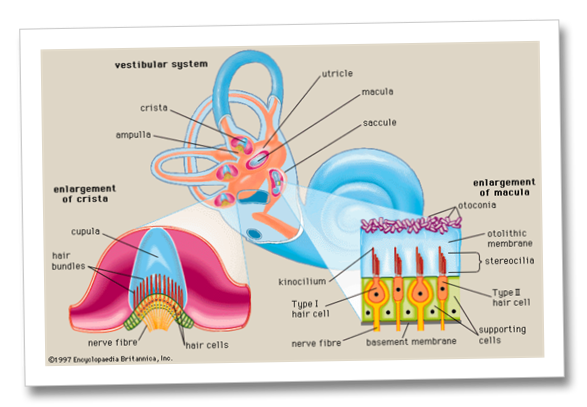Where to begin??? Well, since my last “Status update from Nov. 6th 2007” (where everything is still valid, I won’t repeat everything) some things has changed.
Overall everything is a little bit worse. Tinnitus is loud, perhaps more constant, fatigue is a bit more severe. I get tired a lot faster from a lot less sound. Headaches are frequent.
It’s gotten to the point where I can’t stand the sound of pretty much anything. Even faint fan-noise is uncomfortable. I’m pretty much intolerable to any sound now.
Less than a year ago I was able to listen to music, now I have my hearing aids turned off more than they are on… I rely more and more on my lip-reading skills…
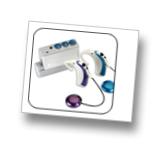
Bilateral CI-operation is still my number one priority. Other than that I continue to take care of my 7 year old son, my fantastic girlfriend (so grateful to have you in my life, honey!!!), family and myself as best as I can. My psychologist has helped me to be able to be comfortable with the fact that there’s not much more I can do. So instead of feeling lost in a black hole, filled with despair, I relax as much as I can, think positive as much as I can and so on. But I have to admit that some times I get the blues and wished that CI-operation could be in the past instead of in the future. But then again, that’s something to look forward to, right?
I am now at about number 60 on the waiting-list for the CI-screening. About 4 months ago I was at the 100th place. If that pace holds, it means about 10 patients a month, which means I could be looking for an appointment at around 6 months from now… Say august… I certainly hope so!!! I really shouldn’t complain, because I’m a lucky guy, really, who live in Norway and these kind of operations are funded by our health-care system… But things can always be better! If not for me, than maybe for the future post-linguistic-deaf person who need CI…
It will be interesting to see how the hospital will respond to my request for doing both ears simultaneously…. It’s not at all standard procedure, I know. It’s just that there’s really no alternative for me, so I might as well get both ears done at the same time…
I think the technology is ripe (Advanced Bionics Harmony with HiRes90K implants that can do 120 frequency bands), the surgery-techniques have developed and are pretty secure. Besides, operating one ear at a time is less cost-efficient than doing both at the same time. 300 000 NOK for one, and 500 000 NOK for two. That’s a whopping 20% saving! Or 100 000 NOK in plain numbers. Not to mention, my recovery will be over once and for all, and I can get back to the workforce sooner.
If the surgeries are done one at a time, I guess it will be almost 3 more years before I’ll get through it for good. In total that could be 6 years (!) of my life dominated by this CI-process…
 The long walk…
The long walk…
If I also take into consideration the time I spent dealing with the fact that I slowly lost my hearing, I would have to add a few years to those 6 waiting for CI. I also struggled with work since 2002. I’m up to almost 10 years of my life!!! If everything had been optimized, it could have been as short as 2 maybe 3 years…. Something could have been done a lot better by the health-care system and by the governments…
I hope that I will be able to work and function even with one CI, but I know it will take more strain on me. I know how it is to be deaf on one ear, too (all those times with defect HA, no good battery etc. etc.). And remember, CI is not fixing my hearing to a 100%, but maybe 30% of perfect hearing. Those 30% is certainly a lot more than the 0,5% I have now…. In fact, it’s more than I ever had. All my life I had approximately 20% residue hearing… And if I get more sound from all over the frequency-chart, I will be a very happy normally functioning deaf man! 🙂
Other than my deafening, my knees are shot, I’m still waiting to hear from the hospital after the initial response that my request has been recorded and acknowledged… I’m not able to do any physically challenging things like running (forget it), ice or in-line skating, swimming(!) or long walks… I’ve been gaining kilos all throughout this winter 🙂 More of me to love 😉
Last night I finally got through the sleep-registration for detecting if I’m suffering from sleep apnea or just plain snoring… Something I decided needed to be ruled out as cause or bi-factor of my relentless fatigue…. Report is due in the mail sometime soon…
I have to thank all my blog-friends here: Thank you for sharing your experiences with the world, thank you for reading my blog and for encouraging words and support! I salute you all! You are indeed a well of good information!
Beautiful Butterfly Jen, Bionic Woman Abby, Running Crazy Sam, Michael is writing Chorost, Metal in his head Jeff, Great Cochlear Kids, Roberta from Italy (where’s your blog?) and many more!
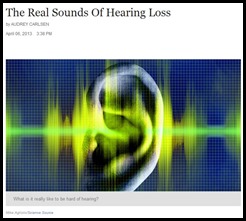 And this time they portray various effects of hearingloss as conceived by the brain, it’s not just a simulation of various frequency losses.
And this time they portray various effects of hearingloss as conceived by the brain, it’s not just a simulation of various frequency losses.
 Social phobia, also know as social anxiety, is the third largest psychological problem in the world today… This diagnosis has a higher representation among people with hearing difficulties (and other populations segments), than in the average population. This site offers more information:
Social phobia, also know as social anxiety, is the third largest psychological problem in the world today… This diagnosis has a higher representation among people with hearing difficulties (and other populations segments), than in the average population. This site offers more information: 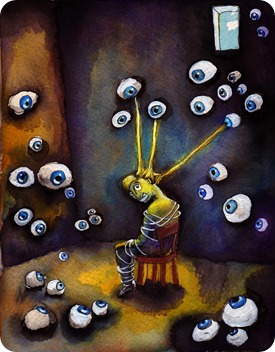 Disclaimer/personal experience: I can not claim expert clinical knowledge regarding social phobia, other than that I have experienced it on my own. To what degree I experienced social phobia is also a subjective matter. Also I am not an expert on cognitive therapy either, other than that of my own experience with such therapy, and it’s effect, regarding my tinnitus (reference to earlier blog posts relating to this matter:
Disclaimer/personal experience: I can not claim expert clinical knowledge regarding social phobia, other than that I have experienced it on my own. To what degree I experienced social phobia is also a subjective matter. Also I am not an expert on cognitive therapy either, other than that of my own experience with such therapy, and it’s effect, regarding my tinnitus (reference to earlier blog posts relating to this matter:  I had not thought about this issue from the aspect that Richard offered, which is such a beautiful thing about this form of communication (i.e. blogging); one thought or experience leads to another thought. Richard puts it so well in his letter, that I put it here, word for word. (Richard, you should seriously think about writing your own blog :-) )
I had not thought about this issue from the aspect that Richard offered, which is such a beautiful thing about this form of communication (i.e. blogging); one thought or experience leads to another thought. Richard puts it so well in his letter, that I put it here, word for word. (Richard, you should seriously think about writing your own blog :-) ) linked, as the word “expectation” was just linked.. That way we will be on the “same page”.
linked, as the word “expectation” was just linked.. That way we will be on the “same page”.





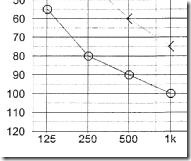





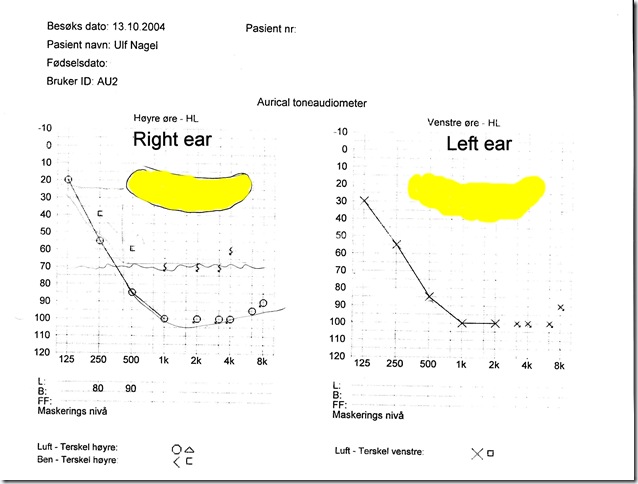


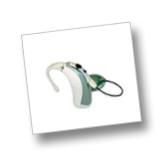


 Then suddenly I get these auditory sensations, it’s like a silent storm. I can feel it somehow. Not like pain, it is not unpleasant, it’s just a sensation of very weak electric current in my brain. Like a blanket of electricity sliding back and forth like the radar screen image. It’s like a soft “wooosh” inside my brain…
Then suddenly I get these auditory sensations, it’s like a silent storm. I can feel it somehow. Not like pain, it is not unpleasant, it’s just a sensation of very weak electric current in my brain. Like a blanket of electricity sliding back and forth like the radar screen image. It’s like a soft “wooosh” inside my brain…
